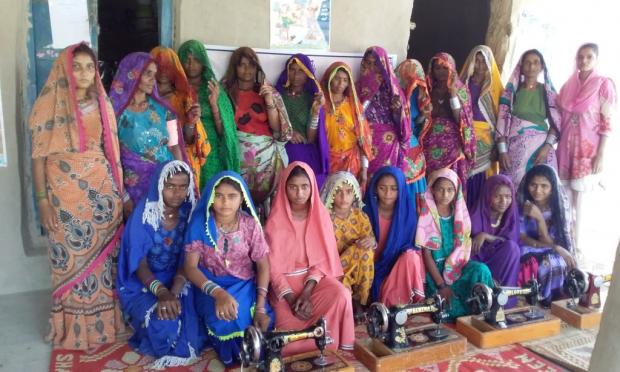Over the past two decades, Pakistan’s southern province of Sindh has hardly witnessed any progress in the human development indicators. It is largely because of the issues faced by the province ranging from poor governance, deplorable condition of minority communities, federal government’s neglect and a fragile regulatory framework. Adding to the woes, the Pakistan government regularly commits excesses
with the province.
A reduced population of the province is deliberately shown in the census figures to deprive the region of its increased share in the divisible pool in the
National Finance Commission Award.
Once known for its progressive politics, religious tolerance, pluralism and vibrant civil society, the province has undergone a change and is no more immune to security challenges. Organized crime, particularly kidnapping for ransom rackets, is the greatest current security challenge in rural Sindh. Criminal gangs operate unchecked with the patronage of political parties and influential landowners, and the politicized police forces do little to clamp down on criminal activities.
Even some extremist organizations are increasingly active in Sindh’s central and northern districts. Sectarian militant groups and the Tehreek-e-Taliban Pakistan are consolidating their
presence in the province in rural areas. Sindh is also often in news for human rights abuse cases, especially cases of enforced disappearances. In October 2011, Asian Human Rights Commission claimed
that the Sindh University authorities allegedly used law enforcement agencies for disappearances of students in Sindh province. In a 2012 statement issued by Asian Human Rights Commission, it said that: “In Sindh province more than 100 nationalists were abducted and disappeared after 9/11, many were extra judicially killed and their tortured and bullet riddled bodies were dumped on the streets.” Validating the above claim, Rubina Greenwood, Chairperson of the World Sindhi Congress stated, “Since February 2017, more than 300 disappearances have occurred, including young activists such as Aaqib Chandio, Shabir Kalhoro, Basit Kalhoro, Ayoob Kandhro,
Kashif Tagar, Shahid Junejo, Insaf Dayo and others. The families of the missing
continue to suffer.”
Another issue that haunts not only Sindh but entire Pakistan is the position of religious minorities who find themselves at the bottom of the socio-economic structure.
This places them in a powerless position and leaves them vulnerable to predation and forced conversions. Evidence provided by numerous NGOs, journalists and academics have shown that abductions and forced conversions are one of the most serious problems facing Hindu and Christian women and girls in Pakistan. Former vice-chairperson of the Human Rights Commission of Pakistan, Amarnath Motual,
notes that 20 or more Hindu girls are abducted every month in Pakistan. The volunteer group Responsible for Equality and Liberty estimates that around 20 to 25 Hindu girls are forcibly converted every month.
Everyday struggle even for the basic needs of life e.g. clean drinking water has become routine for local people of Sindh. In 2016, a commission appointed to probe whether people in Sindh received clean drinking water, and whether the Sindh Environmental Protection Agency (Sepa) had discharged its statutory responsibilities concluded that the “people of Sindh are not drinking clean water. The mixing of untreated sewage with freshwater bodies — rivers, canals, lakes, ponds etc. — was found to be the prime cause of contamination. It was found that water is unfit for drinking purpose in many cities. Amid the rising population and climate change, the
availability of freshwater is becoming worrisome in Pakistan, which may face absolute water scarcity by 2040.
Healthcare services in Sindh today present a dismal picture as major hospitals across Sindh are running their operations without medicines. A senior health professional was quoted by the media saying, “The Sindh government hospitals across the province right now are running their operations without medicines and in some cases without basic health facilities. These hospitals have formally informed the
authorities about their inability to operate even their emergency units in such a situation.”
Sindh also suffers from acute shortage of food supply. Food Insecurity ranges from 40 to 70%. Closely related to health and food scarcity is the stunting indicator of intensifying malnutrition Sindh. As many as 48 per cent children under the age of five are stunted while 35pc of them are severely stunted. Major nutritional problems in Sindh are low birth weight due to poor maternal nutrition, protein-energy malnutrition,
anaemia, and iodine deficiency. Malnutrition is a deep-rooted governance problem.
It is a matter of great concern that successive federal and provincial governments have completely ignored various issues in Sindh, especially the water shortage, unemployment, steep prices of essential commodities and law and order situation. The authorities are yet to fulfil their obligations under international treaties to protect the rights of vulnerable minorities from forced conversions and forced marriages. The Pakistan government must ensure political representation for religious minorities, law enforcement, above board legal system, education policies, government accountability and transparency, and job creation to enhance stability,
both within the province and across the country.

Κόσμος
Ενημερώθηκε στις:
Sindh: Τhe suffering never ends

Ακολουθήστε το Πενταπόσταγμα στο Google news













